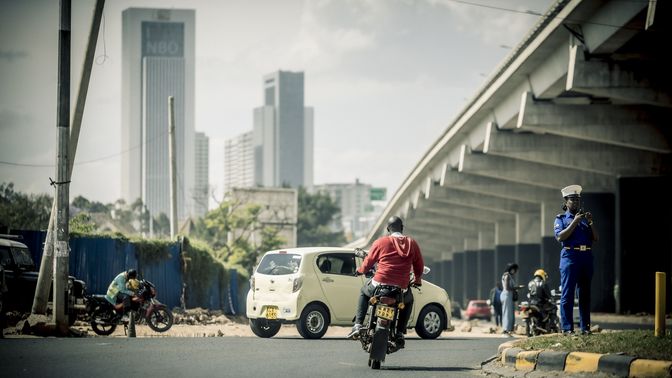

Towards a Space Control Regime: Greater Transparency and Verification of Compliance
Tatiana Valyaeva ist eine von drei Junior Ambassadors 2020. In der diesjährigen Ausschreibungsrunde des Wettbewerbs wurden junge Menschen zwischen 18 und 28 Jahren aufgefordert, sich mit sicherheitspolitischen Herausforderungen im Weltall auseinanderzusetzen. In ihrem Essay schreibt Tatiana Valyaeva über die Gefahr eines neuen Wettlaufs ins All.
With the growing role of space technology in military, economic and civilian activities, space assets are gaining in strategic and military importance. Whilst being key tools for early warning, targeting, and delivery systems for nuclear and advanced conventional weapons, earth-orbiting satellites allow for a myriad of functions for intelligence. Moreover, given that anti-satellite weapons (ASAT) can physically incapacitate or destroy satellites for military purposes their rising numbers do not only increase the risk of space debris colliding with other space objects but also illustrate the creeping weaponization of space (Porras, 2019: 4-5; Set, 2019: 3). Vulnerabilities in satellite and navigational systems provide further opportunities for cyber attacks on military infrastructures, as well as on essential public services that rely on GPS, such as banking or transportation. Due to their vital role, a security dilemma incentivises the amassing of both space assets and ASAT capabilities by state actors and private providers/companies for purposes of threat and deterrence (Schütz, 2019: 2-3) – which may spiral into a new space race.
Then how to reduce the risks of further weaponization of space? Due to the multi-use nature of most space assets, any export controls are going to be ineffective as long as actors can rightfully declare that their development and use of space technologies is for civilian purposes (Rajagopalan, 2019: 16). In consequence, a viable alternative for the scope of a multilateral agreement is to delimit behaviour. Instead of seeking to establish mechanisms that draw on determining the function of an object, it is less contentious to establish regulations for all space activities. An example of a regulation within a space management regime could be the setting of minimum distances between satellites, which allows for greater response time in case of attacks (Porras, 2019: 28ff.) as well as trust-building between space actors. By establishing benchmarks of behaviour in space, it becomes easier to pinpoint outliers that might threaten space objects. Therefore, the international community needs to improve its authority and ability to discern the activities in space in order to identify any potential threats. Clearly, infringements need to be detectable in order for violators to be held accountable – before they gain a decisive military advantage.
In the development of legally binding instruments for space security and effective verification of compliance space situational awareness (SSA) technology is key. This sophisticated technology relies on a range of sensors collecting data to detect and monitor space activities, which would allow for the verification of measures such as a ban on the testing of ASAT technology or rules of behaviour for commercial or observational satellites. The most effective space traffic management framework in terms of verification, that is, the one least vulnerable to deception, would be a global SSA system drawing upon data from many international sources. If a global SSA institution is politically not feasible, regional monitoring cooperation could still be useful to cross-check any allegations of violations against an actor. For instance, an EU SSA agency could periodically publish its monitoring data, which could be then compared to incriminating evidence put forth from different sources (Porras, 2019: 31; Stickings, 2019). These go beyond a mere upgrade in intelligence sharing of military allies (e.g., NATO) for the data is openly available and verifiable. Increasing the overall transparency of the current traffic on Earth’s orbits would be a fairly low cost and beneficial-for-all initial measure in space security to increase overall trust.
Tatiana Valyaeva (28) studiert im Master Politikwissenschaft an der Ludwig-Maximilians-Universität München.
References
Porras, D. (2019). Eyes on the sky. Rethinking verification in space. Space Dossier 4. Geneva: UNIDIR, pp.1-38.
Rajagopalan, R. (2019). Electronic and Cyber Warfare in Outer Space. Space Dossier 3. Geneva: UNIDIR, pp.1-18.
Schütz, T. (2019). Technology and Strategy: The Changing Security Environment in Space Demands New Diplomatic and Military Answers. DGAP kompakt 14. Berlin: DGAP e.V., pp.1-7.
Set, S. (2019). India’s Space Power: Revisiting the Anti-Satellite Test. New Delhi: Carnegie India, pp.1-7.
Stickings, A. (2019). The Future of EU–US Cooperation in Space Traffic Management and Space Situational Awareness. London: Chatham House, pp.1-16.



